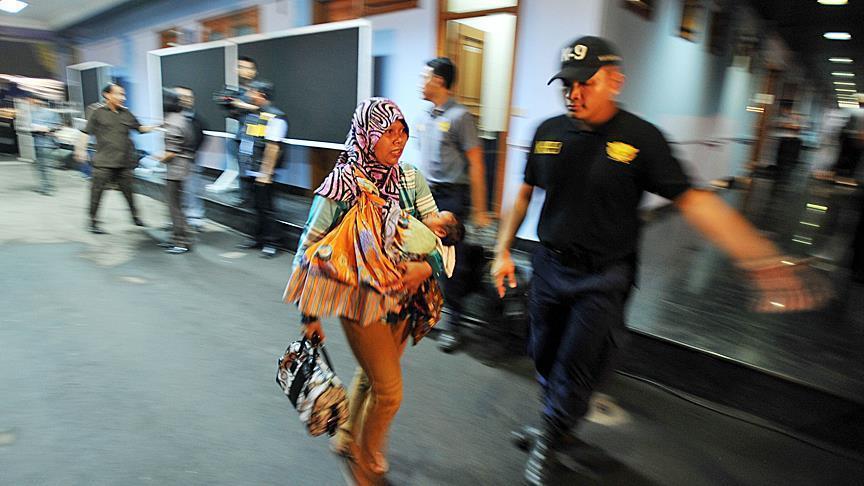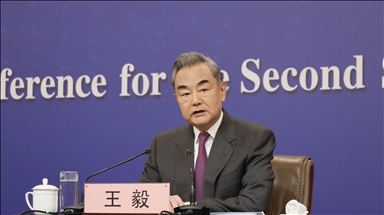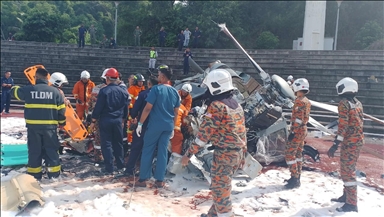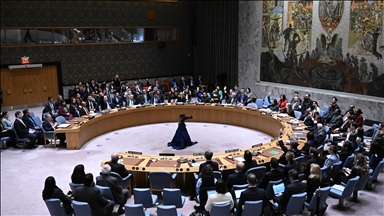Malaysia eyes top rank in US human trafficking report
Launches action plan to reach Tier 1 by 2020, despite right groups criticizing its upgrade to Tier 2 this year
 The Malaysian Immigration System, or myIMMs, were found to have been downed deliberately once a day, allowing manual screening by counter officers in two major international airports in the capital Kuala Lumpur.
The Malaysian Immigration System, or myIMMs, were found to have been downed deliberately once a day, allowing manual screening by counter officers in two major international airports in the capital Kuala Lumpur.
By P Prem Kumar
KUALA LUMPUR
Malaysia has embarked on crucial measures to upgrade its ranking to Tier 1 in the United States’ annual Trafficking in Persons (TIP) report, according to the Southeast Asian country's deputy prime minister.
Ahmad Zahid Hamidi, who is also home minister, told reporters that Malaysia aims to be promoted from its current Tier 2 position by 2020, under the National Action Plan for Anti-Human Trafficking (NAP TIP) 2016-2020 launched Monday.
He underlined that Malaysia would extend the fullest commitment and cooperation of its enforcement, legislation, protection and publicity machineries to ensure the upgrade.
"We will fight this crime, and subsequently improve the image and integrity of our country, and place Malaysia in Tier 1 on par with other developed nations," Hamidi said after launching the national action plan in administrative capital Putrajaya.
Malaysia was upgraded to the Tier 2 Watch List for the 2016 U.S. Department of State TIP Report.
The move drew criticism from rights group who considered it a compromise by the U.S. to persuade Malaysia to be a founding signatory of the regional Trans Pacific Partnership (TPP) trade agreement.
Last February, trade ministers from 12 countries -- including Malaysia -- inked the controversial TPP documents in New Zealand, paving the path for freer movement of goods and services between the member economies.
Hamidi said Monday that Malaysia has been working hard to check human trafficking activities, but noted the existence of an international syndicate suspected to be smuggling people into the country.
Enforcement agencies, including police and the immigration department, had increased efforts to curb the illegal activities with all their means and resources, he pointed out.
The minister also stressed that Malaysia should not be held accountable over issues at hand and added that the source countries must also be held responsible.
On the NAP TIP plan, Hamidi said it would serve as a source for reference and basic guide for ministries, government agencies and non-governmental organizations in planning strategies and initiatives to combat human trafficking.
The 2016-2020 action plan outlines a government-led transformation process following an amendment last year to the Anti-Trafficking in Persons and Anti-Smuggling of Migrants Act 2007, which aimed at strengthening victim protection -- allowing free movement, employment and salary entitlement -- and expanding NGOs' role.
"There are five principles outlined in the action plan including participation of civil society, traffic victims' treatment based on human rights, coordination among international bodies and non-governmental organizations as well as systematic and resilient evaluation," Hamidi said.
He added that the action plan would also be supported by nine fields of programmed, including the strengthening of law mechanisms, concerted actions among enforcement agencies, curbing of labor trafficking and information exchanges.
More than 100 individuals, including immigration officers, were probed last May after immigration systems at Malaysian airports were alleged to have been compromised by human trafficking syndicates to allow the movement of illegal migrants in and out of the country.
The Malaysian Immigration System, or myIMMs, were found to have been downed deliberately once a day, allowing manual screening by counter officers in two major international airports in the capital Kuala Lumpur.
The 20-year-old system was linked to Interpol’s I-Checkit in 2014, to enable authorities to verify within seconds if a passport had been stolen or reported lost.
Stolen or forged passports have long been a problem for ASEAN (Association of Southeast Asian Nations) countries, with smuggling gangs using them to move -- among others -- Uighur Muslims from China's restive Xinjiang region and Rohingya Muslims from Myanmar to third countries.
International traffickers are believed to utilize a labyrinth of networks to move Uighur from China -- where they say they face persecution -- through Vietnam, Cambodia, Thailand, and then through Thailand's southern border into Malaysia, to Kuala Lumpur and beyond.
Rohingya, meanwhile, travel on boats from Internally Displaced Person camps in Bangladesh's Cox's Bazaar region and Myanmar's western Rakhine State -- where they face persecution that many human rights groups have claimed is state sanctioned -- to Thailand, and then through Thailand's southern border into Malaysia, and to its capital and beyond.
Anadolu Agency website contains only a portion of the news stories offered to subscribers in the AA News Broadcasting System (HAS), and in summarized form. Please contact us for subscription options.




